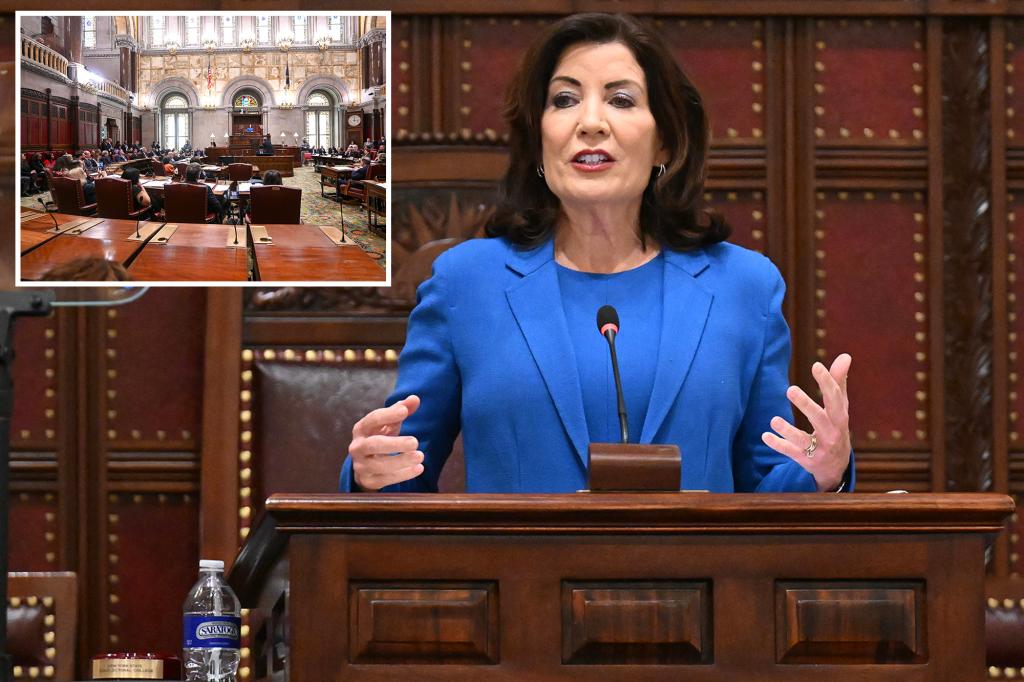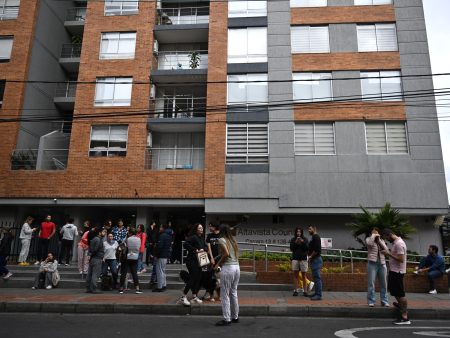Governor Hochul’s Veto Spree Sparks Outrage and Praise in Year-End Legislative Showdown
New York Governor Kathy Hochul’s recent flurry of vetoes has ignited a firestorm of criticism from good government groups, advocates, and legal professionals, while simultaneously garnering praise from certain sectors. The Governor’s decisions, delivered in the waning days of 2024, have sparked heated debates over transparency, public safety, and economic priorities, leaving a mixed legacy as the year draws to a close.
Central to the controversy is Hochul’s veto of a bill designed to enhance transparency in emergency government contracts. This legislation, crafted partly in response to questionable contracts awarded during the COVID-19 pandemic, mandated public disclosure of crucial contract information. Critics, including Congressman Ritchie Torres, accuse Hochul of shielding a "broken system" and prioritizing secrecy over accountability. Good government groups like Reinvent Albany have dismissed the Governor’s justification of protecting "trade secrets" as baseless, emphasizing that the bill merely sought basic details like vendor names and services rendered. This veto directly contradicts Hochul’s inaugural promise of transparency as a hallmark of her administration, further fueling the backlash. Despite unanimous legislative support for the bill, an override appears unlikely due to legislative leaders’ reluctance to challenge the Governor.
Adding to the discontent is Hochul’s third consecutive veto of the Grieving Families Act, a bill championed by the New York State Trial Lawyers Association (NYSTLA). This legislation sought to broaden the scope of individuals eligible to file wrongful death claims. NYSTLA President Victoria Wickman expressed deep disappointment with Hochul’s unwavering stance and lack of compromise. While proponents argue the bill addresses the needs of grieving families, opponents, including hospitals and tort reform advocates, claim it would primarily benefit trial lawyers and inflate insurance premiums. Hochul’s veto message echoed these concerns, citing potential negative impacts on vulnerable hospitals and insurance costs.
Further criticism stems from Hochul’s veto of a bill aimed at reforming homeless shelter reimbursement policies. Advocates for community organizations like Safe Horizon and Urban Resource Institute argue that the current system, which reimburses shelters based on occupancy, disincentivizes them from accepting single adults, including domestic violence survivors. They contend this policy leaves vulnerable individuals without adequate support and access to safe havens. Hochul’s justification for the veto centers on concerns about potential decreases in overall shelter capacity. This explanation has been met with skepticism by advocates who maintain that the current system prioritizes quantity over the specific needs of vulnerable populations.
Not all of Hochul’s recent decisions have been met with disapproval. Her agreement with legislators on a bill regulating the use of artificial intelligence in automated decision-making has been lauded by tech professionals and public sector unions. This legislation addresses growing concerns about the potential for AI to displace workers and introduce bias into government processes. The bill mandates transparency in state agency AI usage and establishes safeguards for the workforce, earning praise from organizations like the AFL-CIO.
Another potential victory for certain advocacy groups lies in a pending environmental bill that would empower the state to hold companies deemed responsible for climate change financially accountable. This legislation, opposed by business groups, proposes a substantial $75 billion fund for climate initiatives. Its fate remains in Hochul’s hands and represents a significant test of her commitment to environmental action. A second pending bill addresses the provision of state aid for school late buses.
The Governor’s vetoes have exposed deep divisions within New York’s political landscape. While some applaud her fiscal prudence and concern for potential economic ramifications, others decry her lack of transparency and disregard for vulnerable populations. The fallout from these decisions will undoubtedly shape the political discourse in the coming year and influence future legislative efforts. The clash between fiscal responsibility, social justice, and transparency remains a central theme in New York politics, with Hochul’s recent actions placing her squarely in the midst of this ongoing debate.
The veto of the transparency bill, in particular, has raised questions about Hochul’s commitment to open government and fueled speculation about potential undisclosed motives. The stark contrast between her initial pronouncements on transparency and her subsequent actions has eroded public trust and provided ammunition for her political adversaries. The unanimous legislative support for the bill further underscores the isolation of Hochul’s position and raises concerns about the balance of power between the executive and legislative branches.
The Grieving Families Act veto highlights the complex interplay between legal reform, economic considerations, and political maneuvering. While proponents emphasize the need to update outdated laws and provide recourse for victims, opponents raise valid concerns about the potential for unintended consequences, such as increased litigation and higher insurance costs. Hochul’s decision reflects a cautious approach, prioritizing stability over potentially disruptive change, but also leaves grieving families without the legal remedies they sought.
The homeless shelter reimbursement veto underscores the difficult choices facing policymakers tasked with allocating limited resources to address complex social problems. While the Governor’s stated goal of maximizing state resources is laudable, critics argue that her approach neglects the unique needs of specific vulnerable populations. The veto perpetuates a system that incentivizes shelters to prioritize occupancy over individual needs, leaving some of the most vulnerable individuals at risk.
The AI legislation, on the other hand, represents a proactive approach to regulating emerging technologies and mitigating potential negative impacts. By prioritizing transparency and worker protections, Hochul has positioned herself as a leader in addressing the societal challenges posed by rapid technological advancements. This decision reflects a growing awareness of the need to balance innovation with safeguards to protect workers and ensure equitable outcomes.
The pending environmental bill represents a potentially landmark achievement in the fight against climate change. If signed into law, it would establish a significant financial mechanism for funding climate initiatives. However, the opposition from business groups suggests a protracted battle ahead, with the Governor caught between the demands of environmental activists and the concerns of the business community. The outcome of this legislative battle will have far-reaching implications for New York’s environmental policy and send a strong signal about its commitment to addressing climate change. The late bus funding bill, while less contentious, reflects the ongoing challenges faced by schools in providing adequate transportation for students.
In conclusion, Governor Hochul’s year-end veto spree has generated a complex and multifaceted response. Her decisions reflect a nuanced approach to governance, balancing competing interests and prioritizing specific policy goals. While some applaud her fiscal prudence and commitment to stability, others criticize her lack of transparency and perceived insensitivity to the needs of vulnerable constituents. The coming year will reveal the long-term consequences of these decisions and determine whether they ultimately serve the best interests of New York State. The interplay between transparency, social justice, economic considerations, and technological advancements will continue to shape the political landscape and define the challenges facing policymakers in the years to come.










